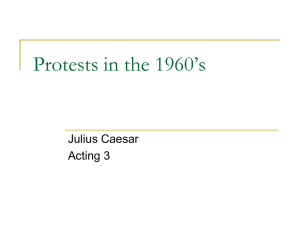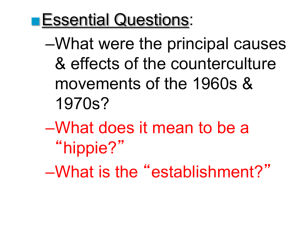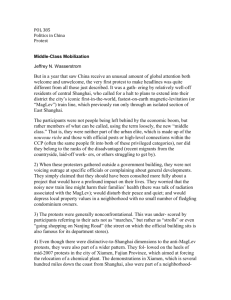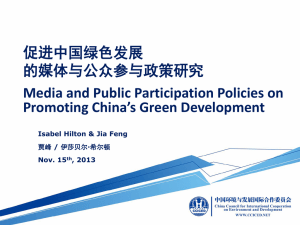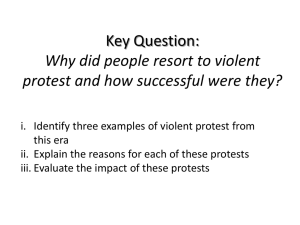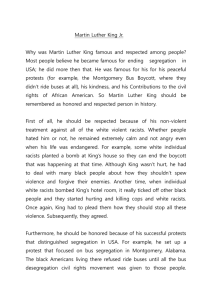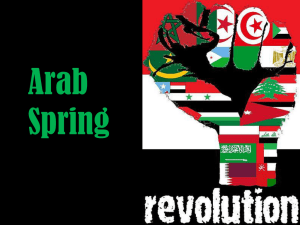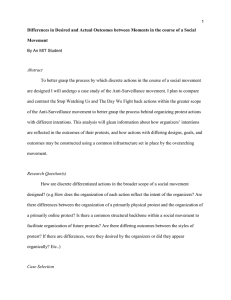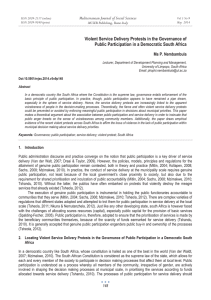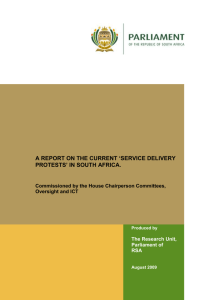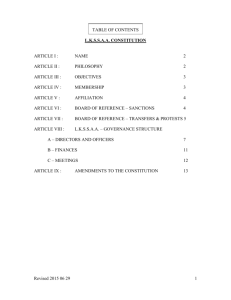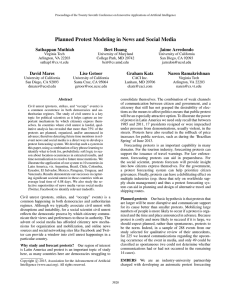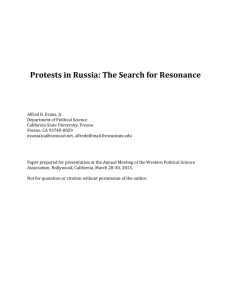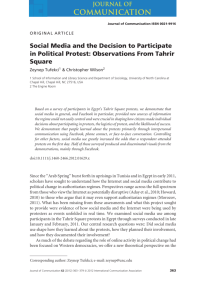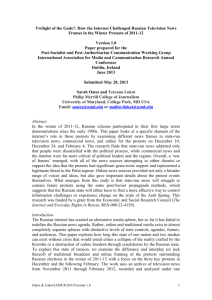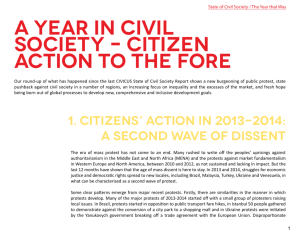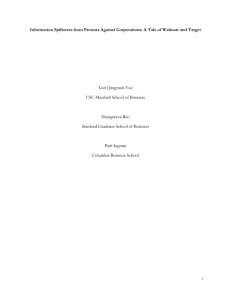Code-of-Conduct-on-Protests
advertisement
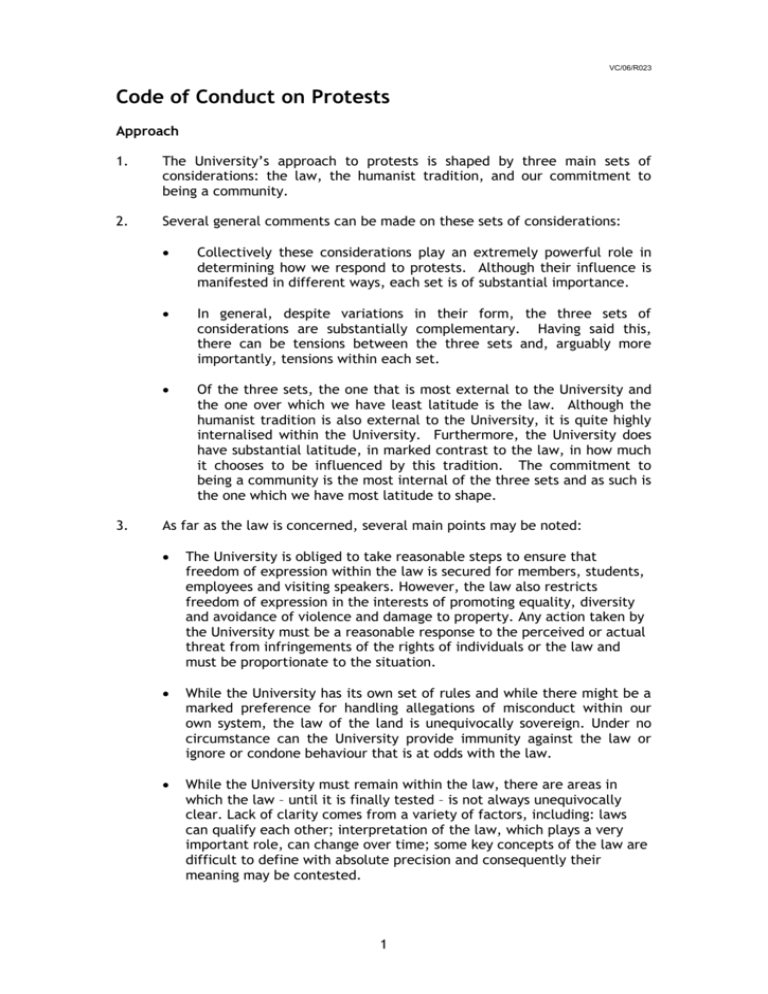
VC/06/R023 Code of Conduct on Protests Approach 1. The University’s approach to protests is shaped by three main sets of considerations: the law, the humanist tradition, and our commitment to being a community. 2. Several general comments can be made on these sets of considerations: 3. Collectively these considerations play an extremely powerful role in determining how we respond to protests. Although their influence is manifested in different ways, each set is of substantial importance. In general, despite variations in their form, the three sets of considerations are substantially complementary. Having said this, there can be tensions between the three sets and, arguably more importantly, tensions within each set. Of the three sets, the one that is most external to the University and the one over which we have least latitude is the law. Although the humanist tradition is also external to the University, it is quite highly internalised within the University. Furthermore, the University does have substantial latitude, in marked contrast to the law, in how much it chooses to be influenced by this tradition. The commitment to being a community is the most internal of the three sets and as such is the one which we have most latitude to shape. As far as the law is concerned, several main points may be noted: The University is obliged to take reasonable steps to ensure that freedom of expression within the law is secured for members, students, employees and visiting speakers. However, the law also restricts freedom of expression in the interests of promoting equality, diversity and avoidance of violence and damage to property. Any action taken by the University must be a reasonable response to the perceived or actual threat from infringements of the rights of individuals or the law and must be proportionate to the situation. While the University has its own set of rules and while there might be a marked preference for handling allegations of misconduct within our own system, the law of the land is unequivocally sovereign. Under no circumstance can the University provide immunity against the law or ignore or condone behaviour that is at odds with the law. While the University must remain within the law, there are areas in which the law – until it is finally tested – is not always unequivocally clear. Lack of clarity comes from a variety of factors, including: laws can qualify each other; interpretation of the law, which plays a very important role, can change over time; some key concepts of the law are difficult to define with absolute precision and consequently their meaning may be contested. 1 4. 5. The University is empowered by the Charter and Statutes to formulate internal, domestic rules and procedures for the University community. In this context, the University has evolved both a substantial body of rules and procedures and a system of investigation and of disciplinary action when these rules and procedures are deemed to have been transgressed. As far as the humanist tradition is concerned: The University has grown out of and is strongly committed to an intellectual and moral tradition that values highly inter alia: diversity, pluralism, representation, tolerance, fairness, dignity, protection of the individual and respect for the rule of law. There is in this context a striking complementarity to the law in that all of these values are basic values underpinning the British constitutional order. Within this tradition, the University is strongly committed to being a place in which there is freedom to express controversial or unpopular views, to engage in critical debate, and to express dissent. While controversy and dissent are welcomed and supported, they are, however, not seen as ends in their own right- controversy and dissent must remain within the law. A feature of Lancaster University, which is highly valued by its members, is its strongly developed sense of community. This has a number of important ramifications: By dint of emphasising a commitment to community, there is a strong appreciation of the obligation to recognise and respect the views and activities of others within the community. This commitment to mutual respect and tolerance is, in particular, antithetical to behaviour that harasses or intimidates others. A second major pillar of this community ethic is a concern, whilst not stifling conflict, to try explicitly to avoid the development of confrontations, marked by zero-sum conflicts. A third and final manifestation of the highly developed sense of community is a commitment to rely as extensively as possible on selfregulation and self-policing. Furthermore, it is expected that self policing will display in highly developed form all of the positive hallmarks of ‘community policing’, including extensive use of negotiation and of consensus building. With generally well institutionalised patterns of behaviour, with high levels of mutual respect, and with substantial stores of knowledge about individuals and groups and the circumstances in which they find themselves, the University is well placed to deploy informal means of conflict resolution. Guidelines 2 1. Influenced in particular by the humanist tradition, the University recognises that protest can be a legitimate mode of expression of dissent and can be a constructive force for change. The University, therefore, unequivocally supports the principle of protest. 2. Influenced by the requirement to remain within the law and by the commitment to maintain a sense of community, the University is opposed to protests that break the law, incite breaking the law, or disrupt the normal working of the University. 3. Influenced in particular by the commitment to community, the University will, wherever possible, attempt to facilitate protests such that they do not contravene the law or disrupt the normal working of the University. Procedures 1. All the procedures set out below require the exercise of judgement and discretion by officers of the University. This will require evaluating, in a reasonable and proportionate way, aspects of a protest (including its membership, its focus, its duration, its frequency, its level of disruption) against the three considerations of the law, the humanist tradition and the commitment to community. 2. All protests should where possible be notified in advance to the Registrar of Meetings. It is, however, accepted by the University that its members may on occasion participate in spontaneous protests for which advance notice is not given and this would not be seen as prejudicial. 3. The University reserves the right to forbid a protest. Protests can be forbidden, however, only in a limited set of circumstances: when they involve legally proscribed groups, when insufficient guarantees can be provided that the protest will remain within the law, when the estimated cost of facilitating the protest is deemed to be disproportionate, or when there is a reasonable likelihood that the protest will lead to damage to persons or property. 4. The Registrar of Meetings will endeavour to facilitate protests such that protests can take place without disrupting the normal working of the University or moving outside the law. This will involve discussion between the Registrar of Meetings and representatives of the protest – a process which the University encourages and which explains the University’s preference for or requirement of advance notification. The facilitation of protests typically may entail a discussion of the site or route for the protest, or the conveying, as appropriate, of information from the protestors to the target group, or, again as appropriate, asking the target group whether it might be addressed by some of the protestors. This list is not exclusive. 5. While the University is in principle supportive of protests and endeavours wherever possible to facilitate protests such that they remain within the law and do not lead to the disruption of the normal working of the University, there may be occasions on which alleged transgressions of what is deemed to be legitimate protest may take place. Minor transgressions should be dealt with informally. More serious alleged transgressions, which can be encompassed within the University’s rules and procedures, will be 3 handled within the University’s disciplinary system. Those transgressions that fall outside the University’s sphere of competence (either because they involve persons who are not current staff or students or because they contravene the law) may require police action, which in turn may lead to a response by the Crown Prosecution Service. Any individual has the right to contact the police and consequently may do so at any time without seeking prior approval from any University authority. Any contact with the police on behalf of the University (other than for operational necessity by the Head of Security) should be conducted through the office of the Vice-Chancellor. In this context, the Vice-Chancellor, over and above gathering information, will consult both with senior officers of the University and at least one member of Senate, who is not a senior officer, prior to an approach to the police. Fiona Aiken – University Secretary Sue Altham – Nominated by TGWU Clive Barker – Nominated by Amicus Reuben Edwards – University Dean Tony Evans – Head of Security Mike Hannis – Nominated by LUSU Andrew Lucas – Nominated by AUT Marion McClintock – Academic Registrar Bob McKinlay – Deputy Vice-Chancellor Penny Park – Nominated by UNISON David Sugarman – Nominated by Law School 27.4.06 4
